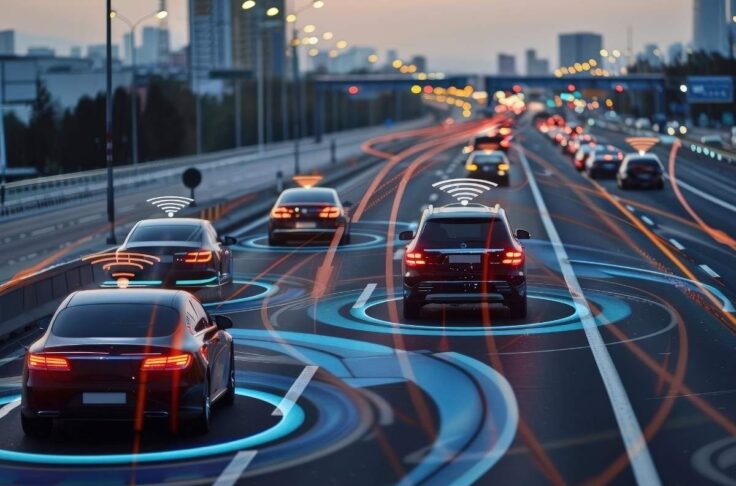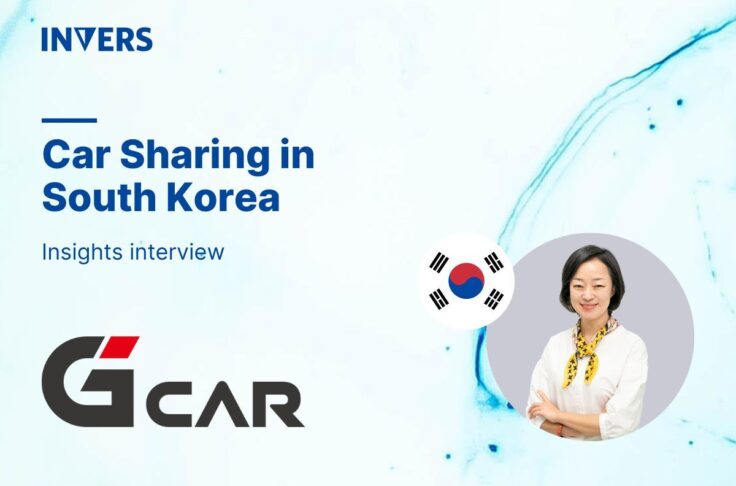Free-Floating Carsharing in Poland: An Insights Interview
Summary
The free-floating carsharing market in Poland is one of the Top 3 European markets. We asked Adam Jędrzejewski, Founder & CEO at the Polish shared mobility association Mobilne Miasto, about the first six years of carsharing in Poland, user characteristics in Polish carsharing, the key market statistics and about the leading operators in the country.

Carsharing is booming. Many operators are reporting expanding fleet sizes and new record-high customer registrations. At the same time, the business models of operators are evolving and seeing new innovations. That is why INVERS launched the Mobility Barometer on European Free-Floating Carsharing on 4.5.23; a free-of-charge, 57-page report that helps carsharing operators quickly understand key market dynamics, insights, and trends.
Our Barometer also highlights statistics and findings from the Polish market. The Polish shared mobility association Mobilne Miasto not only represents the carsharing operators, but also understands the market like no other. Therefore, we are happy to sat down with their Founder & CEO, Adam Jędrzejewski, for this interview.
Who is Mobilne Miasto and what is your aim?
Mobilne Miasto is the Polish industry organization for new and shared urban mobility. We are working together with both private and public mobility stakeholders in Poland. Our objective is to create a framework for better adoption of new and shared mobility services. The ultimate aim is enabling digital MaaS (Mobility-as-a-Service) ecosystems that become a common tool to access mobility across major Polish cities.
Based on data from your recent report “6 years carsharing in Poland”, Poland is one of the Top 3 European free-floating car sharing fleets. How did we get there?
First of all, carsharing is relatively new in Poland. The first carsharing services have been introduced in major Polish cities only in the years 2016-2018. This allowed right away to reach for the most technologically advanced form of carsharing, namely free-floating. At the same time, in the following years, carsharing services have been appearing in other cities. By the end of 2022 it will reach a fleet of 5,500 cars available in over 20 cities and provided by 3 operators.
What are your major takeaways after six years carsharing in Poland?
The development of carsharing in Poland has shown that it needs both a large scale and high availability of vehicles. Operators should do their business nationwide and with a focus on highly populated urban areas. Only such systems were able to survive. Of the 18 carsharing services launched so far in Poland, there are currently three nationwide services in operation. Another takeaway is also that no 100% electric carsharing system was able to remain profitable, despite of launching a shared 500-car fleet in Warsaw and a 200-car fleet in Wroclaw.
Can you share with us typical user characteristics for customers of free-floating carsharing in Poland?
Based on nationwide consumer surveys carried out in 2021-2022, the dominant mean of transportation in Polish cities is still a privately owned personal car (for nearly 50% of respondents) that enhances the drivers‘ „sense of independence” (82% of indications). The carsharing users themselves define such service as renting a vehicle for a short period of time, with no need to own it nor to deal with its daily maintenance. At the same time, the Poles’ key motivators to use shared means of transport are proximity to the vehicle (93% of indications) and the price of the service (87%). Last but not least, 30% of Polish carsharing users owning a car, are willing to give up their own car in favor of a shared one.
Which operators lead the market in Poland and what is different to other carsharing power houses such as Germany, Italy, France or Spain?
Interestingly, 95% of the Polish carsharing market is covered by only two providers (Panek and Traficar). For these two companies carsharing is an additional line of business to traditional car rental. Compared to other European markets, in Poland we won’t find carsharing services in smaller cities nor in the station-based mode. The Polish market is currently distinguished by a discrepancy between the declarations of municipal decision-makers about the positive impact of carsharing on cities, and a lack of real benefits they are granting to shared fleets in order to encourage drivers to give up their own cars (e.g. through reduced parking fees or dedicated parking spaces).
Further insights into free-floating carsharing
Thank you, Adam, for the great chat and this insightful interview.
For more information and interesting findings about free-floating carsharing, we encourage readers to check out our INVERS Mobility Barometer on European Free-Floating Carsharing that launched on 4.5.23 or the Mobilne Miasto report on 6 years of carsharing in Poland.


